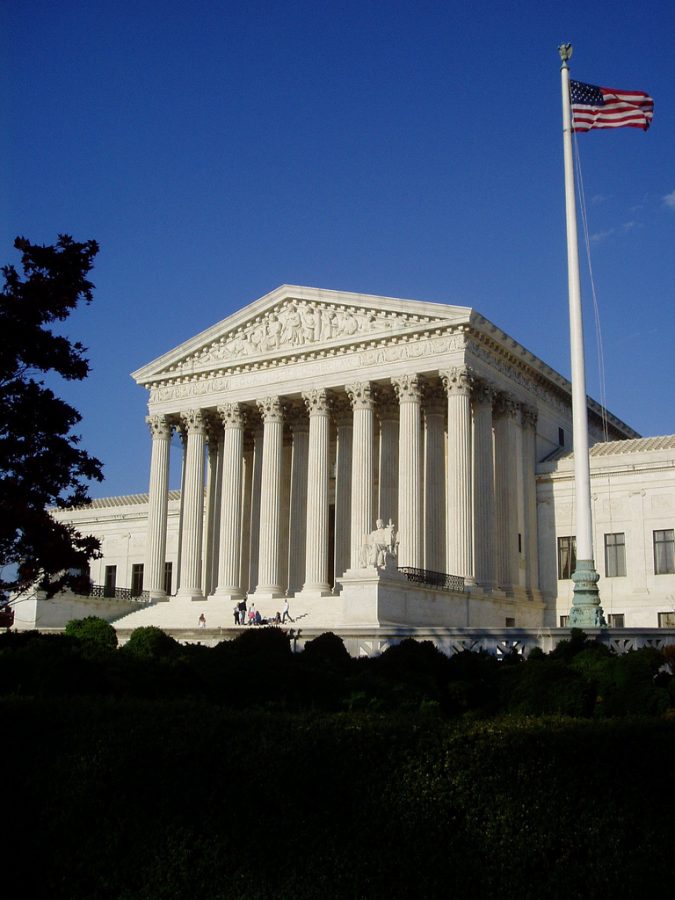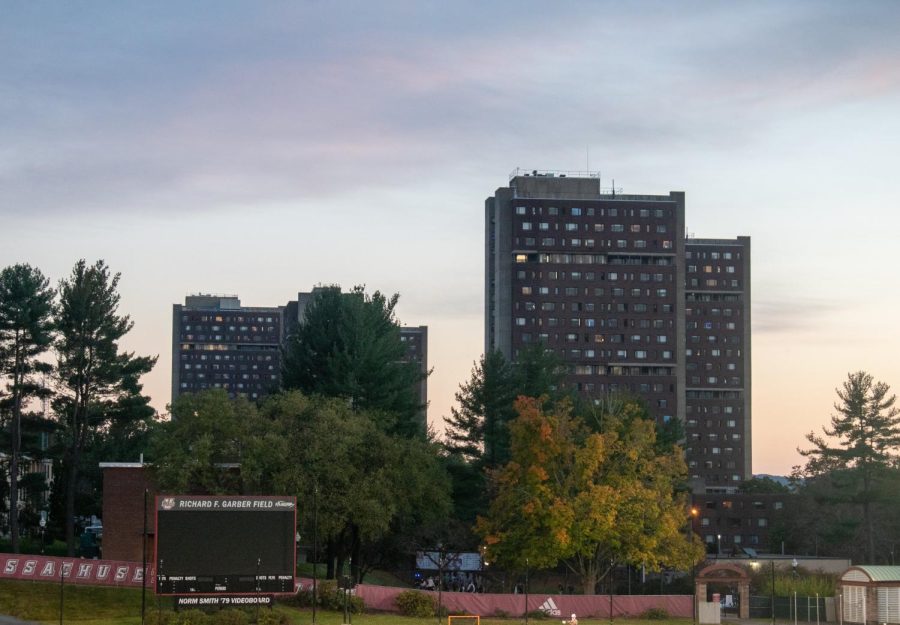Dobbs v. Jackson Women’s Health Organization — the recent Supreme Court case that struck down the federal right to an abortion — has all but proven that the Supreme Court as it’s currently constituted is nothing more than an illegitimate, reactionary, partisan institution.
The decision in Dobbs to eliminate a right held by women for nearly 50 years marks the culmination of a decades-long right-wing campaign to capture the judicial branch and use its power for ideological ends. Along with restricting abortion rights, the court also expanded gun rights amid an epidemic of gun-related deaths, severely curtailed the regulatory power of federal agencies for climate change initiatives and further weakened the separation of church and state as Republicans increasingly reference the U.S. as a Christian country.
The court doesn’t appear to be slowing down. In the current session, which began Monday, the Supreme Court will hear a case concerning the “independent state legislature theory,” which argues that election administration is exclusively decided by state legislatures. This means that state and federal courts would be unable to scrutinize state electoral practices. As Deputy Editorial Page Editor Ruth Marcus wrote in the Washington Post, this decision would have two effects if accepted by the Supreme Court. First, it would allow states to gerrymander voting districts along partisan lines, with no oversight by the courts. Second, the state legislature could deem votes they didn’t like (mail-in votes, for example) invalid, in order to subvert the popular will.
While some wonder if this would be a step too far, even for this court, it’s foolish to leave that up to chance. Especially given the Roberts Court’s dismal record on voting rights. Other upcoming cases threaten LGBTQ rights and affirmative action programs. Given the activist stance this court is taking, we must consider all options available for safeguarding our rights against an increasingly reactionary Supreme Court.
While a variety of solutions have been proposed, there is only one that can effectively address our judicial crisis: adding seats to the Supreme Court.
The heart of the matter is that the court has been occupied by radical right-wing ideologues unbothered by popular opinion. Most Americans, for example, oppose the outright bans on abortion that stemmed from the Dobbs decision. This is all the result of campaigns by groups like the Federalist Society to use the courts to accomplish conservative ideological goals that would never win majority support. The only way to make the court more representative of the American people is by adding more left-leaning justices.
The Supreme Court podcast “5-4” outlines why most other proposals for reform would fail to solve the court’s problems. The most popular alternative is term limits, which isn’t a bad idea. However, it’s likely, that the current Supreme Court would deem term limits unconstitutional and, even if passed, they wouldn’t substantially change the makeup of the court for 20 or 30 years.
Another solution discussed in the podcast is jurisdiction stripping. Jurisdiction stripping is based on Article 3 of the Constitution, which empowers Congress to set limits on the Supreme Court’s appellate jurisdiction. In practice, this would mean that when members of Congress draft a bill, they could explicitly say that the Supreme Court does not have jurisdiction over the bill’s implementation.
As New York Times columnist Jamelle Bouie explains, this could theoretically result in Congress acting without regard to the Supreme Court, but in practice this power has almost never been used. While this provides an interesting route for creating greater checks on judicial supremacy, it seems hard to believe that the Supreme Court couldn’t review a law despite a provision saying the Supreme Court lacks jurisdiction.
A third example — a supermajority requirement for striking down laws — is another good idea in abstract that would do nothing to solve our current problems. Conservatives already have a six-justice supermajority.
These proposals illustrate that the court is too powerful in relation to the other branches of government. Given the severity of the right-wing campaign attempting to undermine democracy, we need immediate solutions that can check the power of this increasingly arrogant court. The only viable option for accomplishing this is packing the courts. Admittedly, this is no easy task. President Joe Biden has been unenthusiastic about court expansion, and Senate Democrats would unanimously need to support both court packing and the elimination of the filibuster to accomplish it. This would almost certainly be opposed by moderates like Sen. Joe Manchin.
But that doesn’t mean we shouldn’t try. Franklin D. Roosevelt’s attempts to pack the courts in 1937 are often remembered as a failure, but that interpretation is misleading. Roosevelt’s proposal to add six justices to the court came in response to rulings that invalidated key New Deal relief programs, in the middle of the worst economic crisis in U.S. history. While Roosevelt failed to expand the court and was left politically bruised for trying, he ultimately succeeded in pressuring the court to be more moderate on subsequent New Deal cases.
Similarly, if Democrats seriously begin advocating for court expansion, the Roberts’ Court may begin to act more cautiously. But ultimately, this requires Democrats to dispense with fears that court packing would be too partisan. The courts have already been effectively packed by Republicans. Roughly one-in-four lower court judges, for example, were appointed by President Donald Trump. Trump similarly appointed three new justices to the court through nakedly partisan and, in the eyes of many, illegitimate nomination process.
Republicans captured significant portions of the judiciary and such control is a direct threat to individual rights. Supporting court-packing efforts to correct the imbalance created by this right-wing assault on the judiciary is only partisan insofar as Democrats are the only party willing to support democracy.
Ben Schnurr can be reached at [email protected] and followed on twitter @Ben_Schnurr.



















Mike • Oct 10, 2022 at 3:31 am
Hey dummy. You don’t have the votes to put liberals on the court. Case closed.
SamlAdams • Oct 7, 2022 at 8:51 am
Hey why not just postpone the November elections, cuz people might “vote the wrong way” while you’re at it.
S Squeglia • Oct 8, 2022 at 10:12 am
Just wanted to enlighten Ben Schnurr that the Supreme Court interprets the Constitution. It doesn’t need “fixing”. It’s a sad state of affairs when you don’t agree with the courts ruling and your only response is to change the court to benefit your opinion. Maybe, by the time you graduate, you’ll understand that you do not have the correct interpretation of the law.
S Squeglia • Oct 8, 2022 at 10:21 am
Hey Ben, the Supreme Court doesn’t need “fixing”. It interprets the Constitution. Sorry you don’t agree with the opinion. You article sounds like “you want to take your ball and go home”.